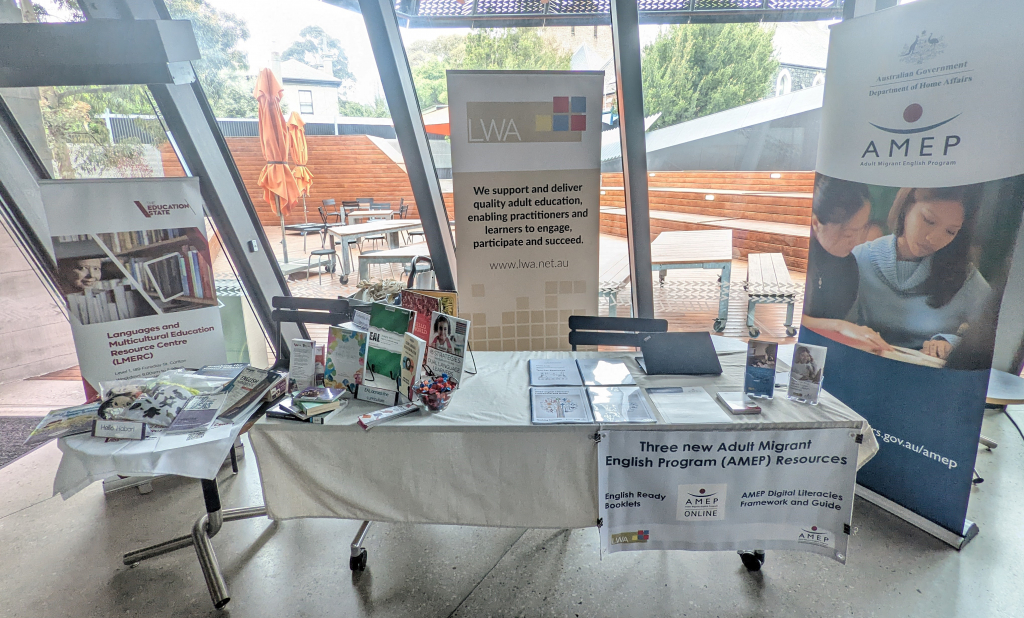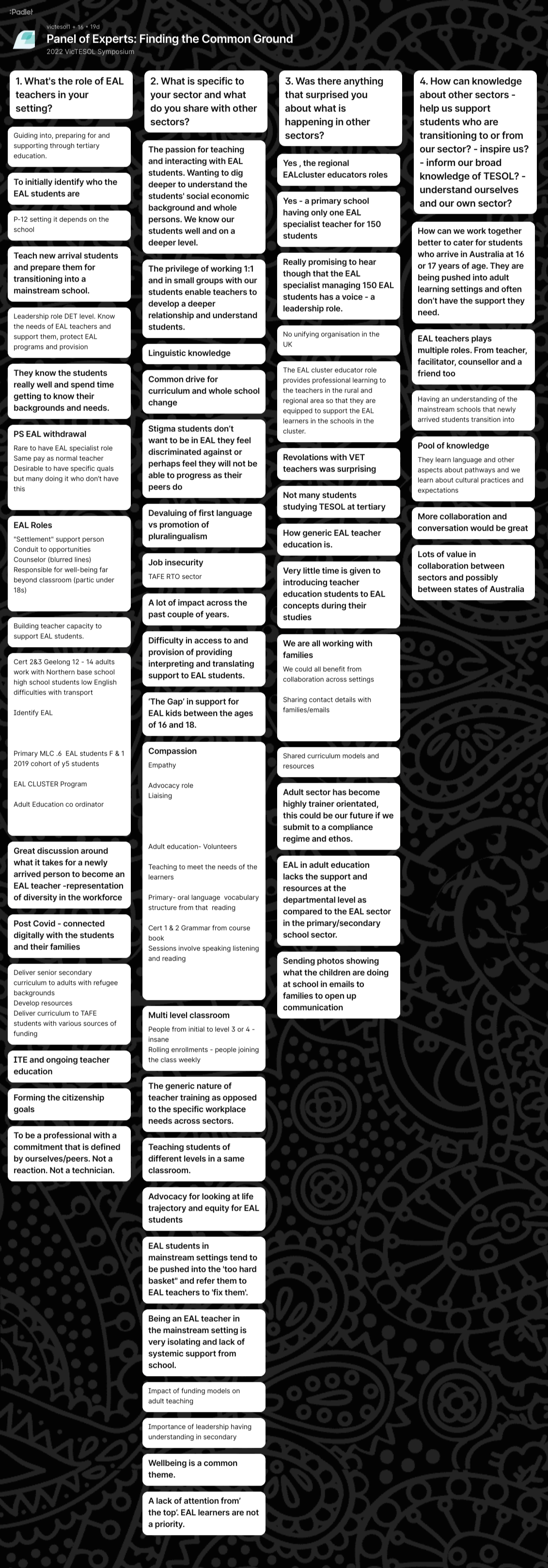Exploring strategies for educator wellbeing
13 June 2024, 5:15 pm – 6:30 pm AEST
Summary
1. Defining Wellbeing
Alexandra began by defining wellbeing as encompassing the health of the whole person, including physical, mental, social, and emotional aspects. Wellbeing is strongly linked to happiness and life satisfaction, influenced by our surroundings and actions, and can change over time. It’s important to note that wellbeing is not a one-size-fits-all concept and requires long-term, sustainable solutions adapted to individual needs.
2. Frameworks for Understanding Wellbeing at Work
Alexandra introduced the PERMA framework as a tool to understand and enhance wellbeing at work. The PERMA model includes:
Positive Emotions: Experiences that contribute to overall happiness and resilience.
Engagement: Being fully absorbed in activities that balance challenge and skill use.
Relationships: Developing meaningful connections with others.
Meaning: Having a sense of purpose and feeling that one’s work is valuable.
Achievement: Accomplishing goals and feeling a sense of competence and pride.
3. Benefits of Setting Boundaries for Wellbeing
Setting boundaries is crucial for maintaining wellbeing. Alexandra emphasized that boundaries help individuals manage stress, prevent burnout, and maintain a healthy work-life balance. Boundaries allow educators to say ‘no’ when necessary, ensuring they do not take on more than they can handle and protecting their time and energy for activities that support their wellbeing.
4. Strategies for Self-Care to Enhance Job Satisfaction, Resilience, and Wellbeing
Alexandra discussed various self-care strategies, including:
Physical Wellbeing: Engaging in regular physical activity and ensuring adequate rest and nutrition.
Emotional Wellbeing: Practising self-compassion, mindfulness, and seeking support when needed.
Professional Wellbeing: Setting realistic goals, celebrating achievements, and continuing professional development.
Social Wellbeing: Building strong relationships with colleagues and participating in a supportive community.
Alexandra also highlighted the importance of creating sustainable habits and reflecting on individual needs to develop a personalised self-care plan.
By integrating these strategies, educators can improve their job satisfaction, resilience, and overall wellbeing.



